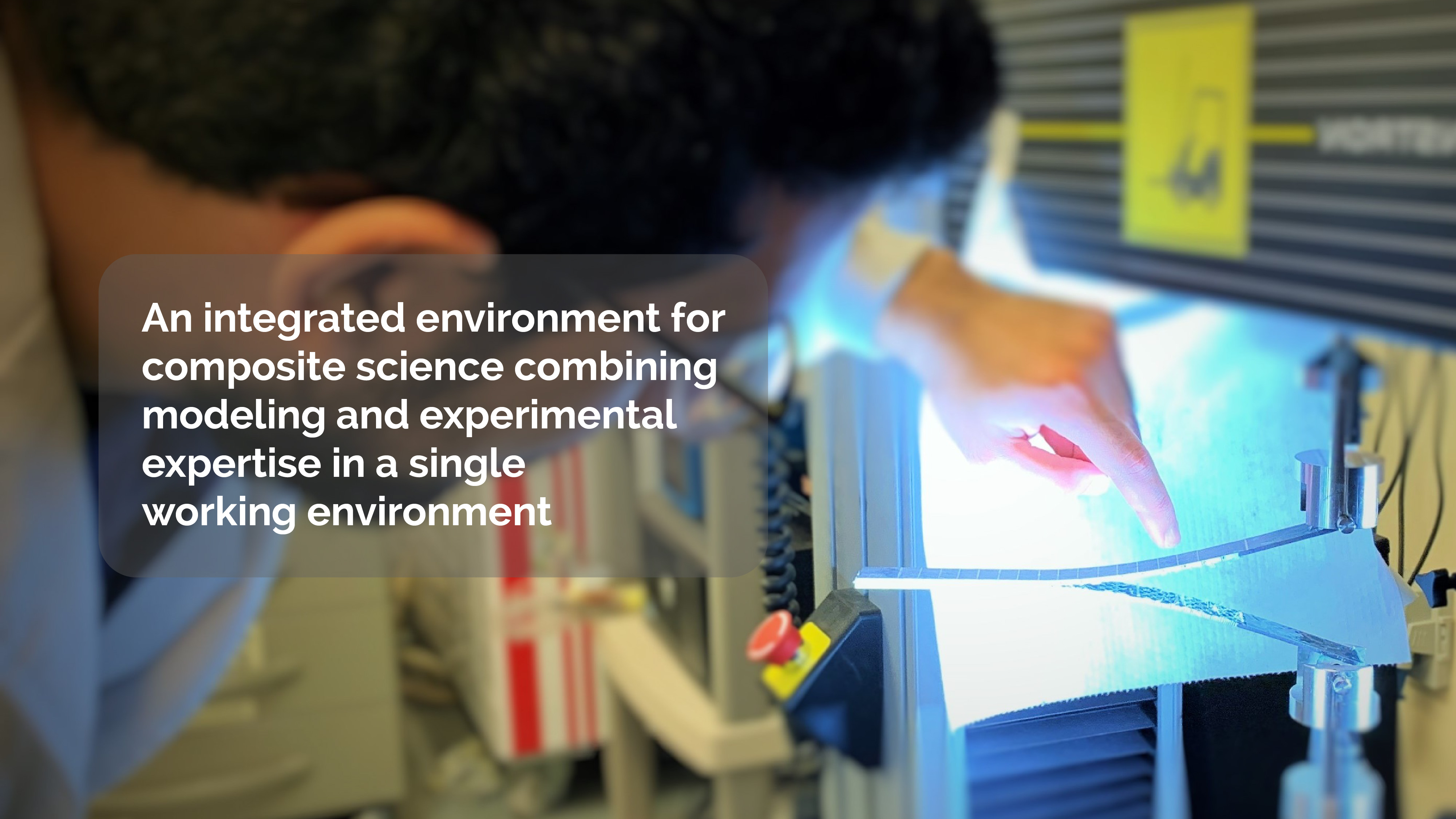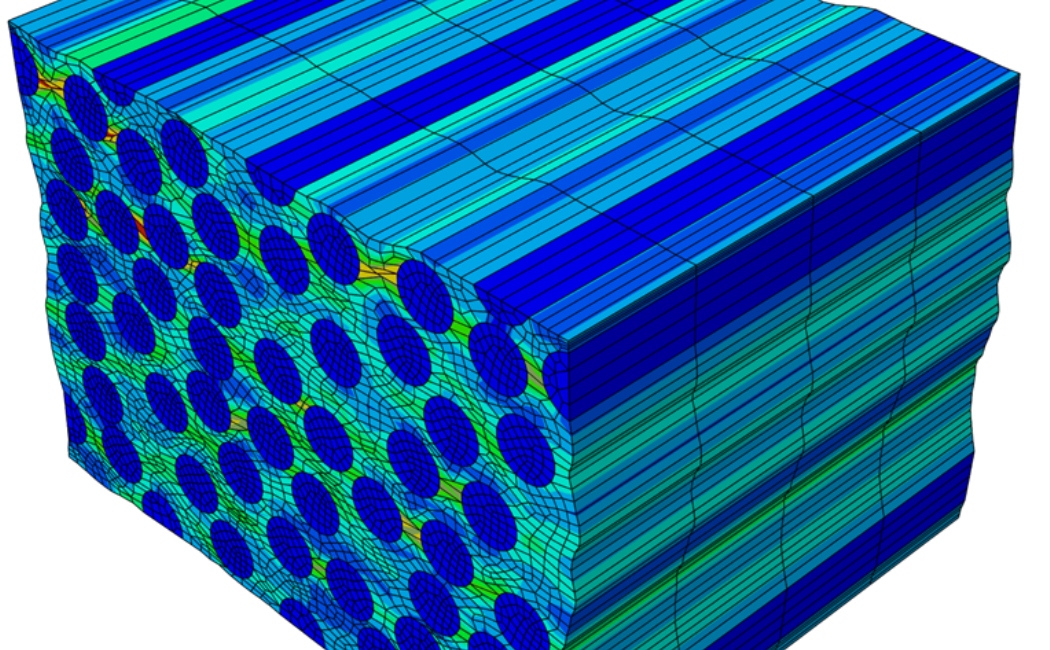

Overview
A project at the Composites Lab is characterized by the amalgamation of experimental and computational/modeling mechanics and encompasses people with very different backgrounds to ensure we capture all aspects of these complex problems. In the Composites Lab you will find skills ranging from theoretical mechanics, applied mathematics, computer science to material science and chemical engineering. Our researchers are connected by their common passion for the fascinating potential of composite materials.
The Composites Lab develops and authenticates techniques to achieve better designs of composite material based structures. Much of this research is done in close cooperation with major industrial partners. This ensures a high level of applied research based on advanced theoretical concepts.
Current Research

We develop finite element framework of different length-scales (micro- and mesoscale) in order to study damage mechanism of continuous fiber-reinforced thermoplastic composites. At micro-scale, the size of unit cell (RVE) is determined rigorously by two-point probability function and Hill-Mandell kinematics. Transverse and shear failure in glass/polypropylene at microscale are simulated. Mesoscale models under in-plane tension and out-of-plane (quasi-static indentation) loads are also developed. Strain-rate dependent damage models are proposed in this work. This project is funded by SABIC Europe.

Researcher(s):
Former member(s):
Funding agency: SABIC Europe (2014-2017), KAUST Baseline (2018-2019)

We develop finite element framework of different length-scales (micro- and mesoscale) in order to study damage mechanism of continuous fiber-reinforced thermoplastic composites. At micro-scale, the size of unit cell (RVE) is determined rigorously by two-point probability function and Hill-Mandell kinematics. Transverse and shear failure in glass/polypropylene at microscale are simulated. Mesoscale models under in-plane tension and out-of-plane (quasi-static indentation) loads are also developed. Strain-rate dependent damage models are proposed in this work. This project is funded by SABIC Europe.

Researcher(s):
Former member(s):
Funding agency: SABIC Europe (2014-2017), KAUST Baseline (2018-2019)

We develop finite element framework of different length-scales (micro- and mesoscale) in order to study damage mechanism of continuous fiber-reinforced thermoplastic composites. At micro-scale, the size of unit cell (RVE) is determined rigorously by two-point probability function and Hill-Mandell kinematics. Transverse and shear failure in glass/polypropylene at microscale are simulated. Mesoscale models under in-plane tension and out-of-plane (quasi-static indentation) loads are also developed. Strain-rate dependent damage models are proposed in this work. This project is funded by SABIC Europe.

Researcher(s):
Former member(s):
Funding agency: SABIC Europe (2014-2017), KAUST Baseline (2018-2019)

We develop finite element framework of different length-scales (micro- and mesoscale) in order to study damage mechanism of continuous fiber-reinforced thermoplastic composites. At micro-scale, the size of unit cell (RVE) is determined rigorously by two-point probability function and Hill-Mandell kinematics. Transverse and shear failure in glass/polypropylene at microscale are simulated. Mesoscale models under in-plane tension and out-of-plane (quasi-static indentation) loads are also developed. Strain-rate dependent damage models are proposed in this work. This project is funded by SABIC Europe.

Researcher(s):
Former member(s):
Funding agency: SABIC Europe (2014-2017), KAUST Baseline (2018-2019)